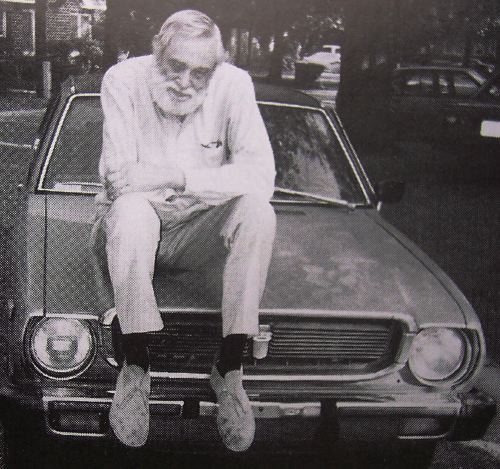In Which We Ponder The Road Taken
 Monday, January 12, 2009 at 8:00AM
Monday, January 12, 2009 at 8:00AM 
Acting Like Actors
by Sarah LaBrie
Revolutionary Road
dir. Sam Mendes
On January 1, 2009 I woke up and resolved to see Revolutionary Road.
Things started out well enough. I put on pants and drove to the theater to buy a ticket. An usher stood up in the crowded theater and gave a little monologue about cell phones. The audience laughed at his jokes and when one person laughed too loud for too long, we laughed at that person laughing and then settled back in our seats, comfortable and happy, like we were in somebody's giant living room.

Ten minutes later, Leonardo DiCaprio slammed his fist against the roof of a car inches from Kate Winslet’s face. The entire theater took a collective breath. Over the next two hours, we remembered: We would grow old. We would die. No one would ever love us honestly.

Like everybody else, probably, who read Yates’ novel, I expected and sort of wanted this movie to suck. His book, as a beret-sporting, satchel-bearing writing teacher once told me, is one of the great masterworks of American literature. I believed him because he was cute and I was sixteen.

Five years later, I actually read it and figured out what he meant. Yates stylizes a standard unhappy marriage into something brutal and true and relevant and real. It’s impossible not to be pulled under by the current of Frank and April Wheeler’s misery. Adapting it into a vehicle for Jack Dawson and Rose DeWitt Baker seemed suspect.

yates
The movie version has its flaws. Leo and his co-workers have giant roast beef sandwiches and cheesecake and martinis for lunch. Kate Winslet wears narrow-waisted pastel dresses and gloves, even when she has no place to go. The camera pans to a wall calendar that reads 1955.

All of which convinces exactly no one that it is not 2009. The main characters have trouble slipping into their roles, or maybe we have trouble letting them. Kate’s face does this angry old man thing when she cries, which reminded me that even though she is stunningly attractive, she’s not always pretty. Plus I kept wondering if she sounds weird to herself when she fakes an American accent. That is not her fault. But still.

At first, the scene where April and Frank fall in love bugged me, too. Frank tells April he wants “to feel things. Really feel them." “I think you’re the most interesting person I’ve ever met, Frank Wheeler,” replies April. The words, said in earnest, come off as false. I thought the problem was poor acting but then I realized, no.

Frank and April Wheeler are the type of people who look one another in the eye and tell lies simply because they want them to be true. Frank is not particularly interesting, at least not from where we stand, and April is smart enough to know that. But she doesn’t want to. Revolutionary Road is a movie about illusions. The actors act like people acting, and they pull it off well.

Seven years later, April is a housewife/failed theater actress. She cooks and cleans in lovely, perfectly-fitted frocks that don’t do anything to conceal her desperation. Frank, a walking jumble of lies and contradictions, grumbles along at his vague office job and sleeps with a secretary and hates himself and everyone else.

Holding them together, just barely, is the rapidly crumbling shared delusion that they're better than this life with its boring neighbors and nosy landladies bearing gifts of sod.

Eventually, a guest (Michael Shannon) on leave from a mental hospital, comes along and blows down their house of cards, then sets it on fire, then poops on it and throws the whole flaming mess into their faces. His two scenes alone make the movie worth seeing. He is tall, and he walks funny, and when he talks it is like a shotgun firing bullets. You want to believe he will cut the film’s unbearable tension. He does not.

During the last fight scene, when the masks finally slip off for good, my mouth actually dropped open and my hand flew up to cover it, which is not something I thought happened to anyone in real life.
I left the theater in desperate need of a hug. Instead, my car wouldn't start. I sat alone in the Arclight parking lot for two hours before AAA sent a tow truck. It seemed fitting.
Sarah LaBrie is a contributor to This Recording. She is a writer living in Los Angeles. She writes here, and she tumbls here.

PREVIOUSLY ON THIS RECORDING
Without or within.
Holding fast to the rules.
It hurts too much.






























